Shuanglianpi (雙連埤) is both a Hakka outpost and a place of great ecological interest. The conjoined body of water from which it gets its name is the centerpiece of the 17.16-hectare Shuanglianpi Wildlife Refuge (雙連埤野生動物保護區). No waterways of significance fill or drain this scenic lake in Yilan County’s Yuanshan Township (員山鄉).
During the 1895 to 1945 period of Japanese rule, the colonial authorities — struggling to secure Taiwan’s foothills — encouraged Han people to settle in areas adjacent to indigenous communities. Around 1910, a 49-year-old Hakka pioneer called Tsou Cheng-sheng (鄒成生) from what’s now Taoyuan decided to begin farming at Shuanglianpi. He invited Hakka clans surnamed Kao (高), Wu (吳) and Luo (羅) to join him. Despite attacks by Atayal Aborigines and other setbacks, they managed to establish themselves.
The road up to Shuanglianpi has been improved in recent years, and redesignated Provincial Highway 7D (7丁). Cautious drivers won’t have any difficulties with the switchbacks. On clear days, Turtle Island (龜山島) can be seen from a couple of vantage points on the highway.
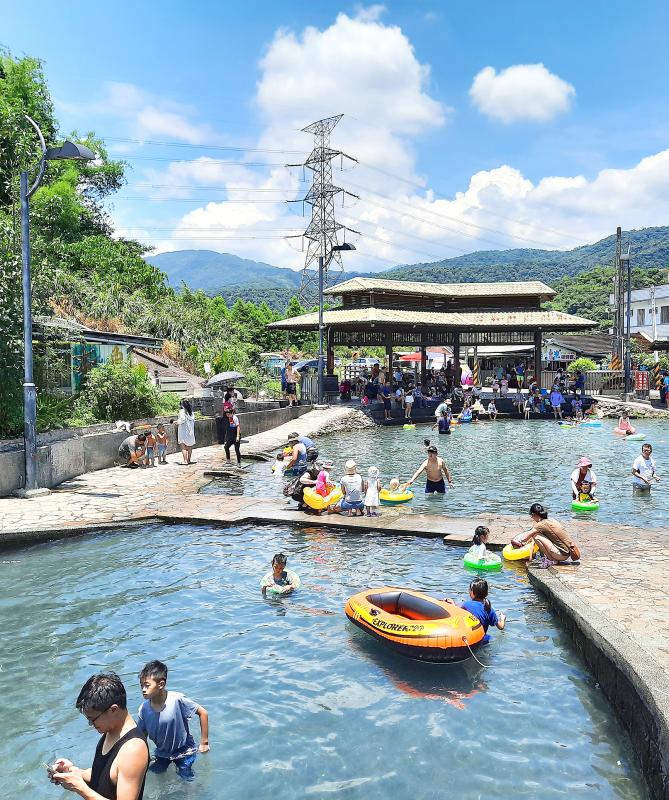
Photo: Steven Crook
Those who drive past Shuanglianpi and venture deeper into these hills are bound for Fushan Botanical Garden (福山植物園). This hard-to-access facility preserves a fascinating range of plants and other natural wonders.
On the day of our visit, much of Yilan County seemed in danger of sinking beneath the weight of daytrippers and weekenders. At Shuanglianpi, however, we found a parking spot with ease. Taking our time to walk all the way around the pond, a distance of almost 3km, we ran into just a few sightseers, a couple of locals and a group of elementary-school students who were learning about the area’s trees and plants.
Driving around the lake is feasible, but you’d miss much of what makes this place special. For every human we encountered — on foot or in a vehicle — we saw a score or more butterflies and at least a dozen dragonflies.
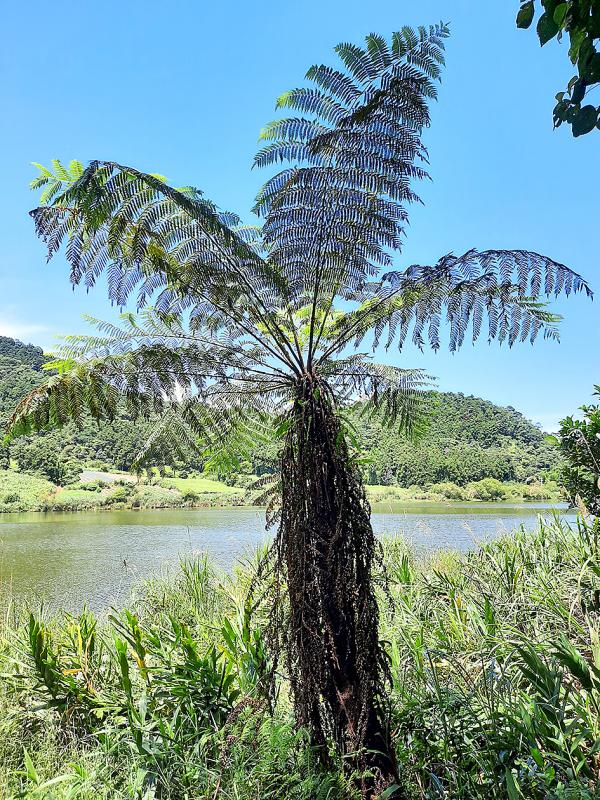
Photo: Steven Crook
According to a Forestry Bureau Web page, Shuanglianpi Wildlife Refuge has 58 dragonfly species, 32 species of other aquatic insects, and 206 species of terrestrial insects. The refuge is supervised by Yilan County Government, but much of the credit should go to the Society of Wilderness. This Taiwan-based environmental NGO (Chinese-language blog at: shuanglianpi.sow.org.tw) deploys volunteers to tidy the area and educate visitors.
According to the same Web page, 112 aquatic plant species can be found at Shuanglianpi. I’ve never been much of a botanist, and I wasn’t able to identify any examples of Kusano willow, a deciduous shrub that’s endemic to Taiwan, or of common Philydrum. The latter is a type of herb that produces yellow flowers around this season.
My green-fingered and observant wife pointed out beds of wild white ginger with delightful white flowers, and flying spider-monkey tree ferns that were a good bit taller than me. Specimens of the latter often look tatty, because their trunks are usually covered by dead fronds that haven’t dropped off. Evolution favors the retention of shriveled fronds, as they protect the trunk from parasitic climbing plants.
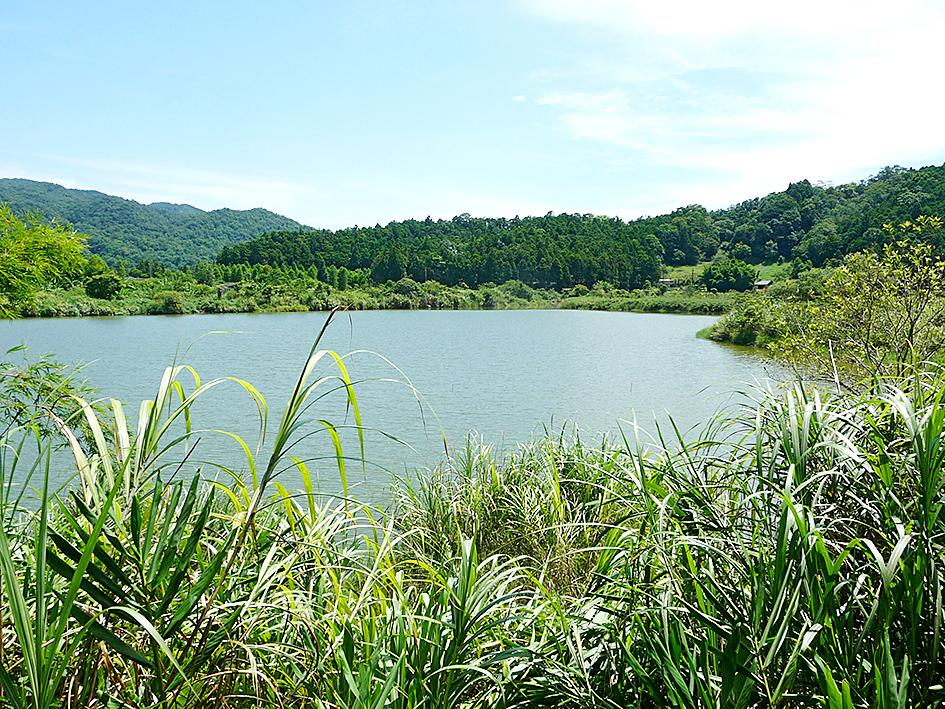
Photo: Steven Crook
Taiwan is a fern paradise. One tally puts the total number of fern and lycophyte (also known as “fern ally”) species across the country at 747 — more than in all of Japan, and about twice as many as in North America. As we followed the narrow gravel road on the south side of the lake, we spotted several different types of fern thriving in the shade.
The hillsides facing the water are mostly managed woodland, with a few plots where spring onions are grown.
On the flat land between the northern edge of the lake and Provincial Highway 7D, farmers cultivate rows of Okinawan spinach (紅鳳菜, sometimes called edible gynura), which they also sell to the outsiders passing through. This vegetable, which has purple leaves, is rich in calcium, iron, phosphorus, potassium and vitamin A. Few humans like its taste, but neither do many insects, so there’s less need to apply pesticides.
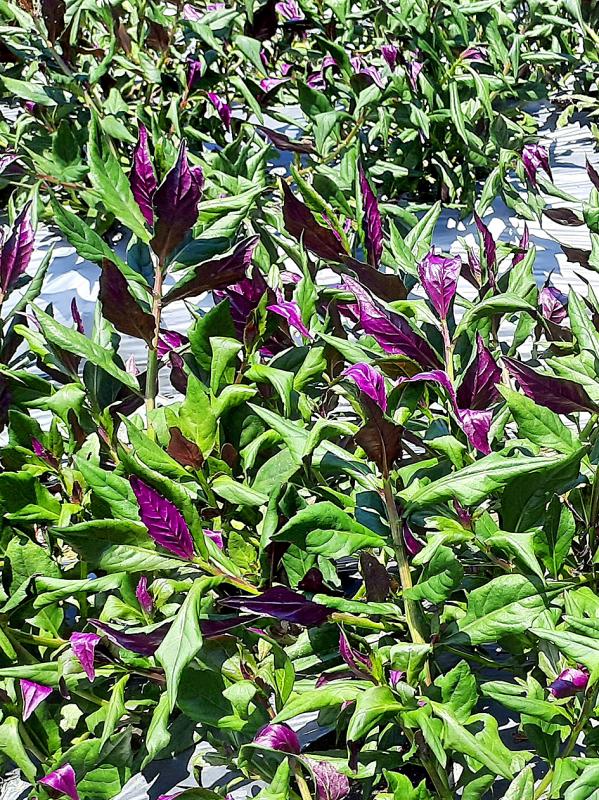
Photo: Steven Crook
If you want to combine a trip to Shuanglianpi with a look at Fushan Botanical Garden, you’ll need to plan well in advance, and be able to read Chinese. Applications to enter the garden can be submitted between 75 and 35 days before your proposed visit via: fushan.tfri.gov.tw. Entering with less than 35 days’ notice is sometimes possible if there’s been a cancellation; call the garden at (03) 922-8900 extension 1 to inquire about this.
Visitors are not allowed to bring pets into the botanical garden. They shouldn’t eat snacks which might leave behind crumbs or peels, and there are no trash cans, because researchers don’t want to disrupt the foraging behavior of the area’s muntjacs, boars and other animals. Neither food nor drinks are available; it’s easy to spend half a day inside. Good footwear is essential, and an umbrella is advisable.
Nearer to the crowded lowlands, no permits are needed to enjoy Bubbling Crab Pool (螃蟹冒泡), a cold spring where kids and adults can splash around in chilly but clean water. There’s no English-language sign in the vicinity, but finding this spot isn’t difficult — especially on a hot summer’s day, when you’ll see cars parked next to Highway 7D. The pool’s address is 18-1 Dahu Road (大湖路); it’s on the left if you’re returning to the plains from Shuanglianpi, about 1km past Mingguang Buddhist Temple (明光寺).
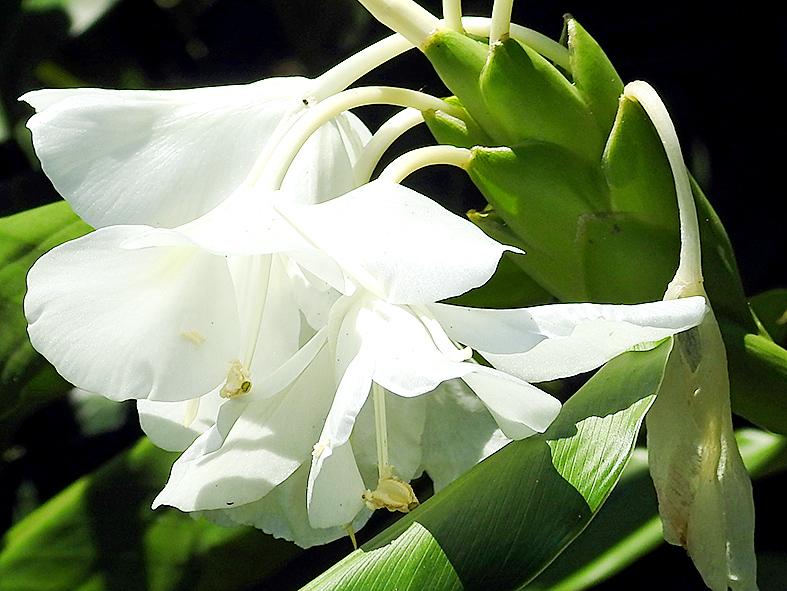
Photo: Steven Crook
Steven Crook has been writing about travel, culture and business in Taiwan since 1996. He is the author of Taiwan: The Bradt Travel Guide and co-author of A Culinary History of Taipei: Beyond Pork and Ponlai.
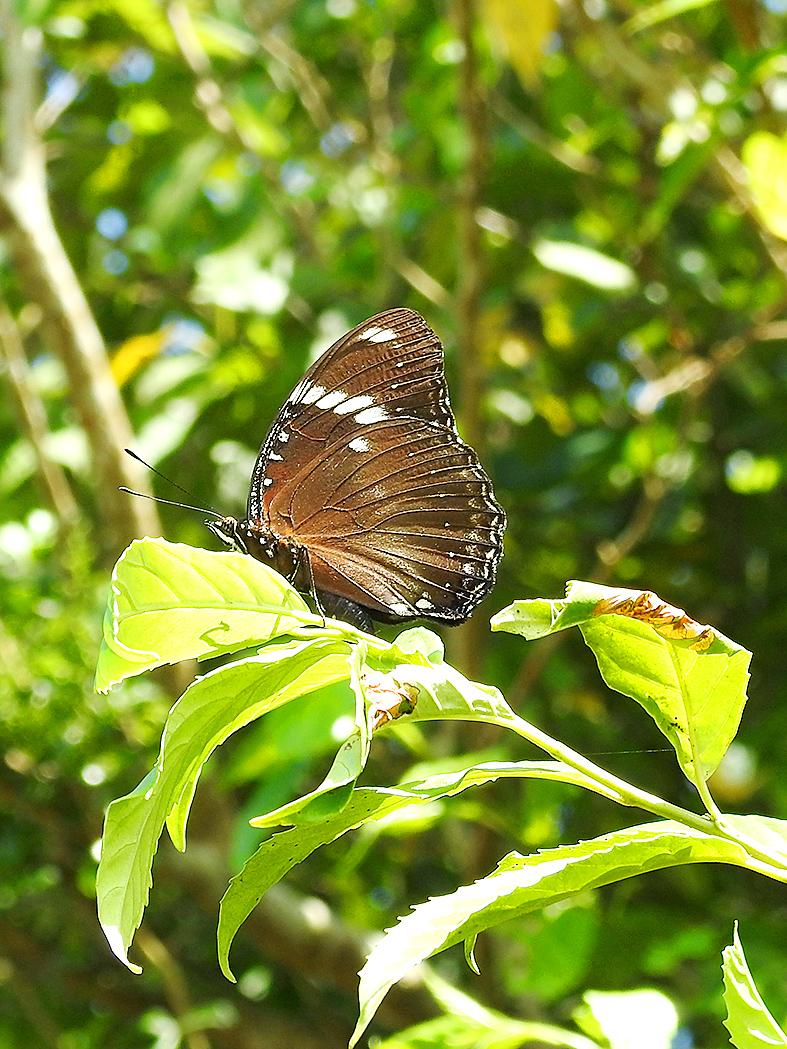
Photo: Steven Crook

March 10 to March 16 Although it failed to become popular, March of the Black Cats (烏貓進行曲) was the first Taiwanese record to have “pop song” printed on the label. Released in March 1929 under Eagle Records, a subsidiary of the Japanese-owned Columbia Records, the Hoklo (commonly known as Taiwanese) lyrics followed the traditional seven characters per verse of Taiwanese opera, but the instrumentation was Western, performed by Eagle’s in-house orchestra. The singer was entertainer Chiu-chan (秋蟾). In fact, a cover of a Xiamen folk song by Chiu-chan released around the same time, Plum Widow Missing Her Husband (雪梅思君), enjoyed more

Last week Elbridge Colby, US President Donald Trump’s nominee for under secretary of defense for policy, a key advisory position, said in his Senate confirmation hearing that Taiwan defense spending should be 10 percent of GDP “at least something in that ballpark, really focused on their defense.” He added: “So we need to properly incentivize them.” Much commentary focused on the 10 percent figure, and rightly so. Colby is not wrong in one respect — Taiwan does need to spend more. But the steady escalation in the proportion of GDP from 3 percent to 5 percent to 10 percent that advocates

From insomniacs to party-goers, doting couples, tired paramedics and Johannesburg’s golden youth, The Pantry, a petrol station doubling as a gourmet deli, has become unmissable on the nightlife scene of South Africa’s biggest city. Open 24 hours a day, the establishment which opened three years ago is a haven for revelers looking for a midnight snack to sober up after the bars and nightclubs close at 2am or 5am. “Believe me, we see it all here,” sighs a cashier. Before the curtains open on Johannesburg’s infamous party scene, the evening gets off to a gentle start. On a Friday at around 6pm,

A series of dramatic news items dropped last month that shed light on Chinese Communist Party (CCP) attitudes towards three candidates for last year’s presidential election: Taiwan People’s Party (TPP) founder Ko Wen-je (柯文哲), Terry Gou (郭台銘), founder of Hon Hai Precision Industry Co (鴻海精密), also known as Foxconn Technology Group (富士康科技集團), and New Taipei City Mayor Hou You-yi (侯友宜) of the Chinese Nationalist Party (KMT). It also revealed deep blue support for Ko and Gou from inside the KMT, how they interacted with the CCP and alleged election interference involving NT$100 million (US$3.05 million) or more raised by the